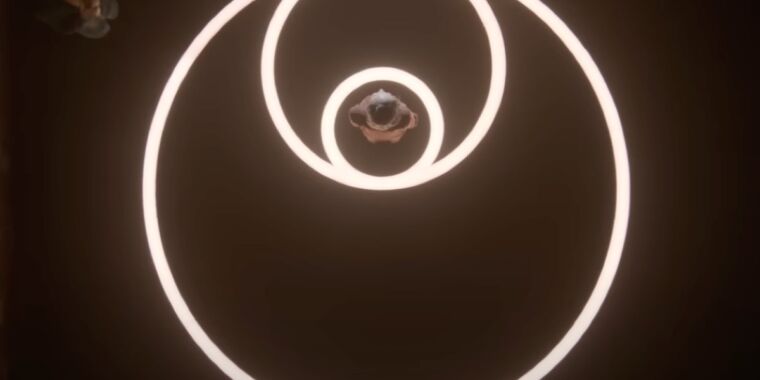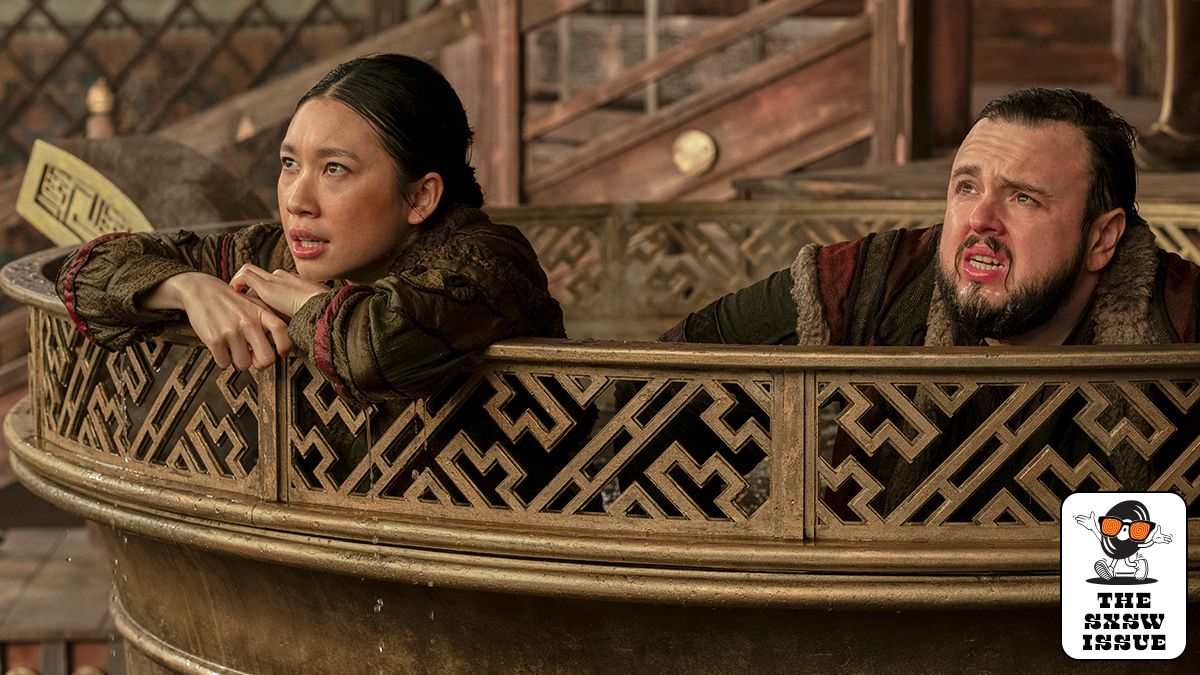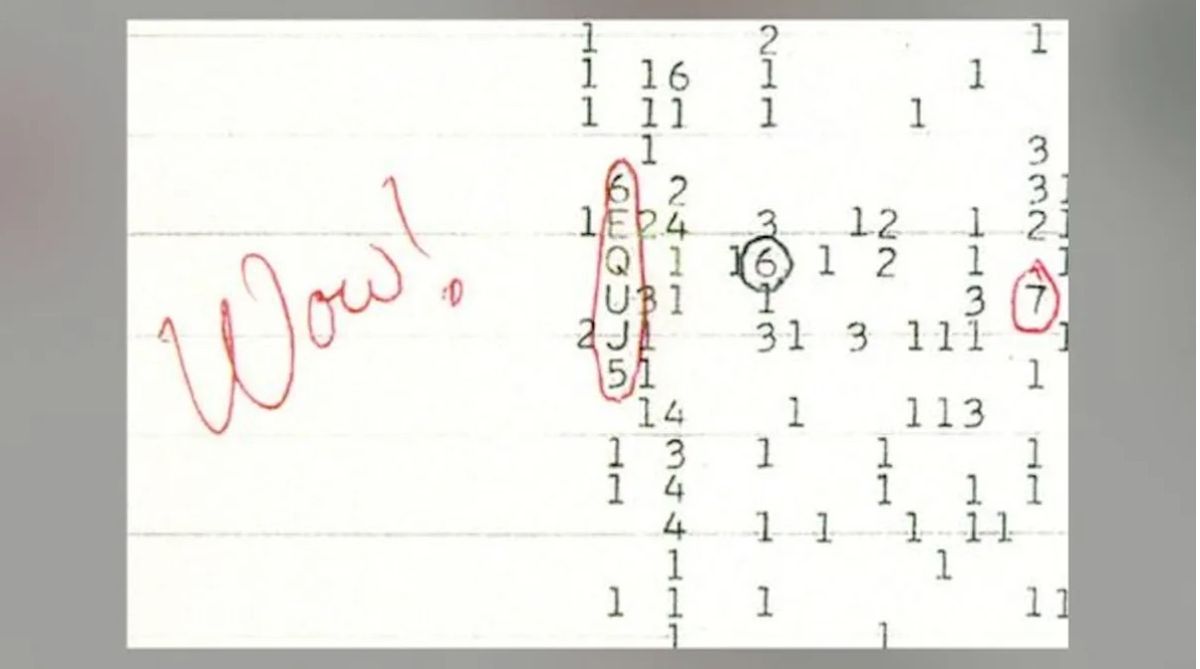The whole saga opens up in the days in Chinese Cultural Revolution at latter part of the 1960's. At the heart of Cold War with the people going absolutely bonkers on Communist agenda denying everything from God to Science, because it didn't fit the manifest.
Having recently dealt with a description of Marx in AC Syndicate I can say I'm happy that I was born in a Communist country. He was a troublemaker and people believed in him, just like the brainwashed party members are behaving in the beginning of the episode, where they publicly lynch a psychics professor for speaking the truth.
A lot of science is theories that gets mended over time as the body of evidence points out that the theory in those parts are not absolute. It never can be so because it's a theory based on the current knowledge. Although, when you go down to textbooks, used in the classrooms, what is false might though as the truth. God forbids you if you happen to think with your own brain and use it to fulfil the essay question in the matter.
Just like what happen with the professor getting beaten by the thugs on the stage. Science could have proven that the guy was going to die under excessive beating, but it was ignored ...
Over fifty years later, we get to the main series through another death. This one happening somewhere in London, with the mysterious countdown painted with blood on the walls. In the SF terms, it usually means two things, aliens or the end of the world. Latter most likely involving some sort of TImeTravel dilemma, but I don't think we are dealing with the temporal anomaly in this one.
Especially as the victim was a Pakistani doctor specializing on studying the cosmos. The problem is that he is just another victim of the countdown. One who thought that he could take out his own eyes to stop the message, playing in his mind.
Not far away in Oxford Particle Accelator, another Dr is troubled because he's the last man working on the project that "proved all our science theories from past 60 years is wrong. Science is broken." Yet, the machines that made the measurement is based on those theories are working. So not everything is broken. Just Saul is feeling the pressures of the proof.
His boss says, "Einstein wasn't right about everything. If anyone can figure this out, it's you." Then she asks, "Saul, do you believe in God?"
Saul denies and goes on to claim that the results aren't "an argument for God."
"So what's left?" she asks.
I had that same very problem with the unexplainable, and the only solution I could figure out was the presence of the God. Only the agnostics deny it because they want to remain ignorant. What happens next is even more unexplainable as the next thing the boss walks into a neutron study lab (a humongous tank only present in Antarctica and Japan) and throws herself into a water (used as a capture medium).
The lab is there, but it doesn't have the tank.
Assuming not far away two boffins are talking about the problem is a pub, and it is revealed that: "All the particle accelerators started producing the same results nine months ago." Jin, the boffin lady then goes on to claim that she checked the CERN code, "line by line," and couldn't find the problem, when her friend Auggie suggests the anomaly being "A hack."
So what could it be? Man, aliens and their signals are weird, but this program brings them out differently.
A moment later Saul calls Auggie and she start to see the beginning of the countdown displayed on mobile screen. So the interesting question is why her? What makes her so special that she gets to see it?
Those are the questions in the mind of the murder investigation inspector tasked on the problem as he crosses out another boffin on his board of clues. Then it is revealed that all five bodies are presented, Jin Cheng, Augistina Salazar, Will Downing and Jack Rooney are present on the board, with him being the fifth main character trying to solve the case.
All boffins are present in the boss lady's funeral, with Auggie being the only one who can see the countdown, which itself is interesting because to my mind it's a telepathic signal that her brain cannot block. She reveals to Jin during the funeral that she's been to see a neurologists and the doctor have no clue.
I cannot blame them because the doctors can only go so far before they venture into the unknowns. And none of the papers talks about telepathic messages. Not if you ignore 'the fringe theories.'
After the funeral the boffins gather together in the pub, while the detective chases a strange person man-in-black climbing on an energy company helicopter. Auggie storms out from the meeting to have a smoke and she meets a young female, who claims she knows what's happening. And for typical boffin Auggie ignores her until she's pops the question about the countdown, "How much time do you have left?"
She then goes to claim, "It's an easy to make it stop. You put an end to your work. No more nanofibers. You shut down the lab," before she smiles and adds, "Simple."
But that's not an easy thing to do, to give up on your life works, and do something else. She then claims that Auggie doesn't want the countdown to get to zero, because "nothing good ever happens at zero." All Auggie needs to do is to give up on her life and look at the sky in next day midnight to see the universe winking.
Man, the tension is high at the halfway point, where we get to see another flashback from '67 with the CCP workers clearing mountains from forests. The professor's daughter is one of the workers, before she's approached by a reporter. He claims that on top of the mountain CCP is conducting strange experiments with the large parabolic dish, while down at the foot, the workers are destroying the environment without thinking about the consequences. Ones that he has read about in the pages of Western text book.
She reads it, falls in love, have sex with the reporter, and plant seeds in the clearing before the reporter sells her out. But she doesn't reveal to the Authorities the source of the book, when they come to collect her after camp search for forbidden items. Her punishment is imprisonment instead of a work camp.
The authorities offer her solution by making her to sign a paper that condemn people she had never met. She refuses to go down that route. So the authorities douse her with water and leave her to freeze in a cell, with no windows or heating.
It doesn't take long before she gets the fever and the authorities decides to take her out from the prison and transport her to top of the mountain with the big dish. It is a CCP military installation, and the party has needs for her talents in astronomy. It's either that or death. So she chooses the camp with special status and inability to post anything about her work to the science community.
Back in the present day, the Detective Inspector is revealed to work for the HQ of Strategic Intelligence Agency. HIs boss asks about the progress, which there isn't much, expect the photos showing Auggie talking to no-one in the steps where she had a fag. Then that the MiB is really an oil company boss, who has not seen in the public for over 50 years. And that Iranians have some sort of head device, probably to try to block the signal, before his boss goes to reval that DI has been sacked from the Scotland Yard, Mi5 and OSCT (Office for Security and Counter-Terrorism).
It is the helmet that is the McGuffin that leads Jin to discover the helmet at the boss lady's bedroom, where the mother claims Vera having been playing video games. The thing is that the helmet is nothing like our VR or AR headsets. It is too thin and have no traditional electronic displays. Vera's mum gifts it to Jin, before it is revealed that her mum was the professor's daughter at the dish.
At her place, Jin dons the helmet, which connects to her mind and transports her mind to 'grey desert.' At the past in time to see one of Chinese pyramids standing above the ground. The sun rises fast behind the pyramids and the desert is blasted with a wind. A blow that moves enough of sand to show a flayed corpse with no eyes.
Jin takes off the helmet and the scene returns to DI. All he wants is the helmet, because it is somehow connected to all of it. But how?
It is not revealed as the next scene is back at Auggie taking stoned Saul to a square to see the stars. She can still see the numbers getting down to 10 hours, before she gives Saul the code disk and reveales that it has not been manufactured since 1950's.
As the bell tolls, the pair looks up and see the sky light up from countless of stars, before they start to blink. Except it's not one but a code for the disk. Except it's not words but the numbers, the countdown ... for the arrival.






